How This Gorgeous Georgian Valley Rehabbed From Terror to Tourism
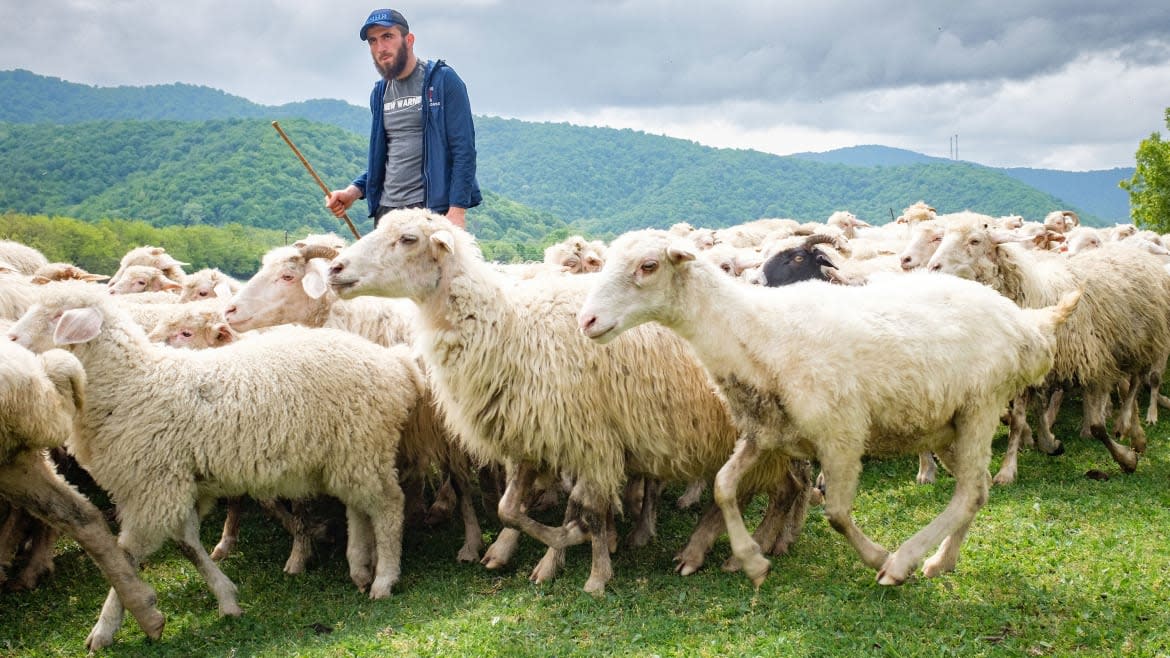
Nazy Dakishvili began studying law in 2008 at the Georgian American University in Tbilisi, Georgia’s capital city. When her fellow students found out she was from Pankisi Valley, in the northeast of the country, they were stunned.
“After a teacher read my name he looked at me and said, ‘Are you from Pankisi? Are you Chechen?’,” said Dakishvili. “I said, ‘Yes, I am’. It was shocking for them… they were scared. They asked if I used to play with bombs and guns.”
Pankisi is only a 125-km drive from Tbilisi, but for those students the stunning rural valley may as well have been Baghdad. Their information about the area, near Georgia’s border with Chechnya, was likely gleaned from media reports about Pankisi supposedly being a terrorism hotspot.
During and following the 1999-2000 Second Chechen War between Russia and Chechen fighters, many of the latter, alongside Chechen refugees, moved across the border from Chechnya to Pankisi. It was, according to Dakishvili, a time of “chaos and lack of security.” Kidnappings took place, vigilante groups formed, and Pankisi garnered a reputation as a bolt-hole for foreign extremists.
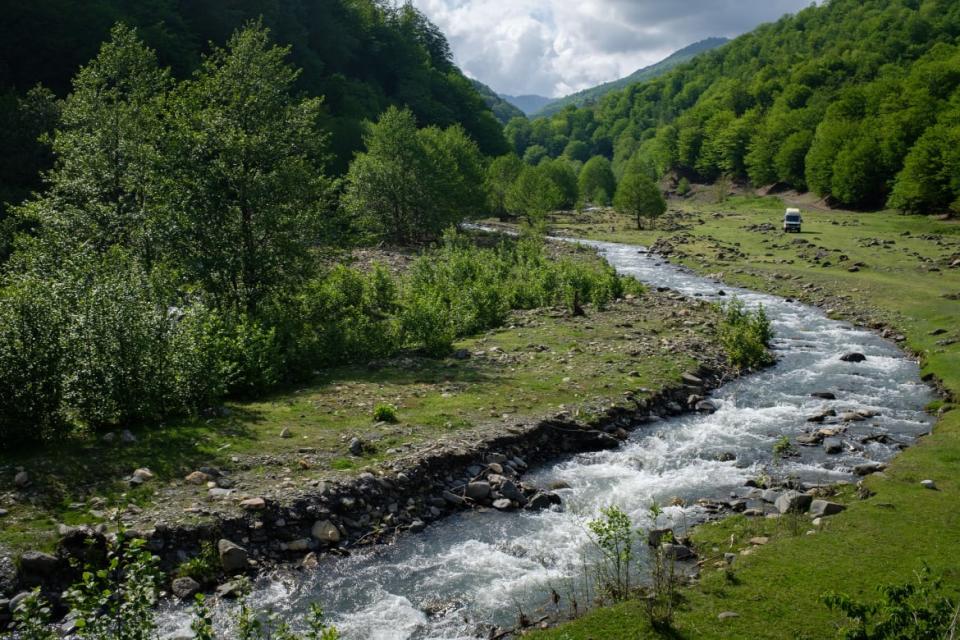
In 2002 the U.S. sent special operations forces to Georgia to train Georgian soldiers to exert control on Pankisi, which was becoming increasingly isolated from the government and wider society. In later years many young Pankisi men were recruited to travel to Syria and join the Islamic State.
Having endured prejudiced comments at university about her background, Dakishvili met with similar reactions when she became a lawyer after graduating in 2011. Pankisi is home to around 10,000 Kist people: predominantly Muslim ethnic Chechens living in Georgia, which is an overwhelmingly Orthodox Christian country.
“My colleagues warned me: ‘Don’t go back, it’s not safe there’,” she said. “They had this information from the media, those stereotypes, still. That was the point I realized I had to do something.”
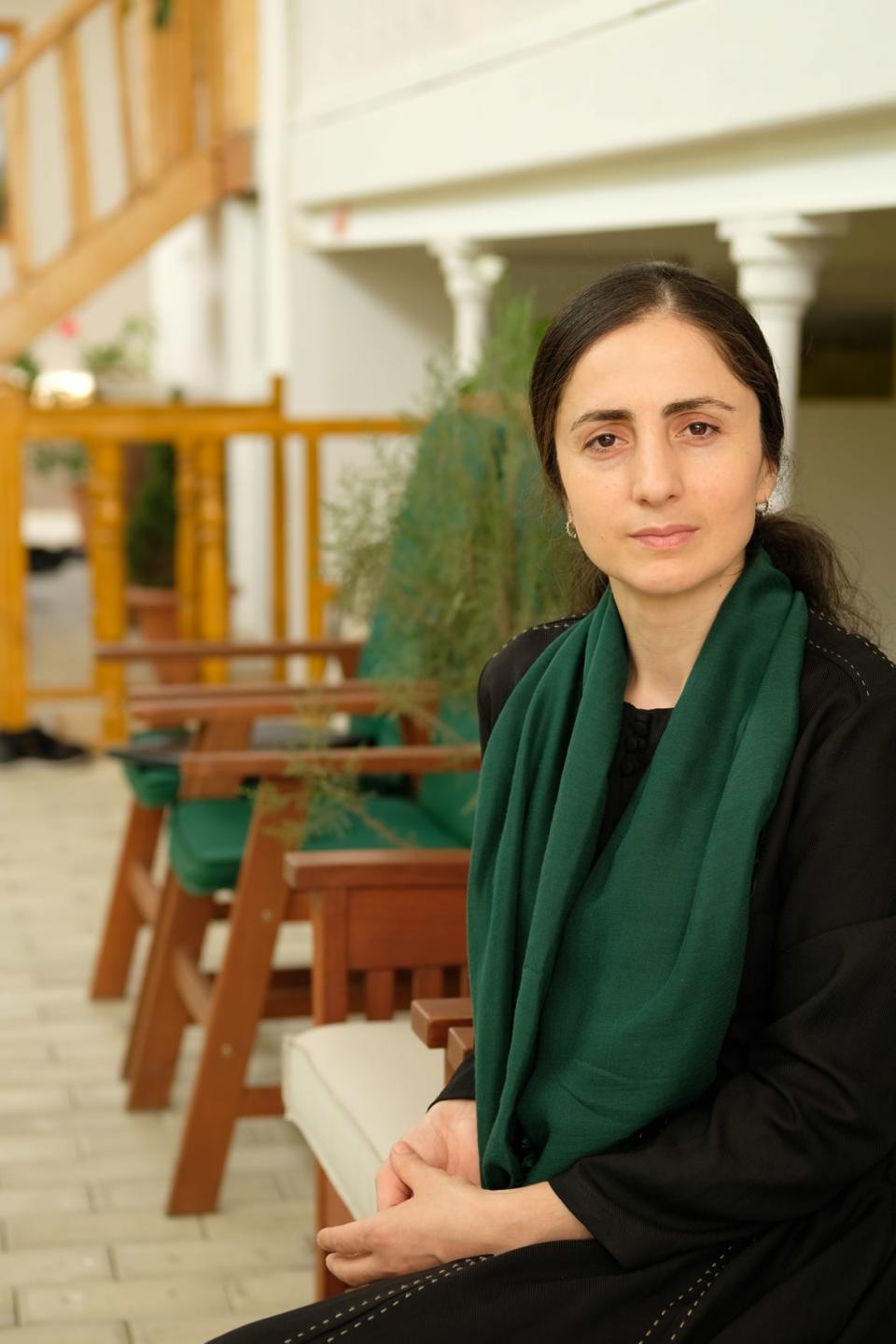
Dakishvili believed that the best way to “correct the narrative” about Pankisi, as she put it, was to get outsiders to experience it for themselves. Rather than terrorism, to her Pankisi’s soul was a strong, warm community proud to showcase itself if given the chance. A community that happened to be based in an area of rural beauty.
Leaving her legal career, Dakishvili returned to Pankisi and drew up a new mission: creating a grassroots, agriculture-focused tourism scene to replace terrorism associations with those of Kist hospitality. She told friends and family that she planned to open a guesthouse in Jokolo, her home village, but they dismissed the idea of tourists visiting Pankisi. The memory of the 1999-2004 ‘Pankisi crisis’ was still strong.
Dakishvili said that by the time she opened her guesthouse in 2013, the foreign extremists were long gone. “But we were already seen as outsiders, and we felt it. I realized that we can’t ask others to help us, so we should help ourselves, and the best way would be by bringing tourists, to show them how people live here. We wanted them to see that we’re just normal people, and that this is a safe place.”
As well as being safe, Pankisi is beautiful. I visited in spring 2022, climbing the green hills flanking the valley, dotted with stone watchtower ruins. In an old graveyard a silver-maned horse clopped towards me, traversing rocky graves: an image so ethereal I checked the nag’s forehead for a unicorn horn.
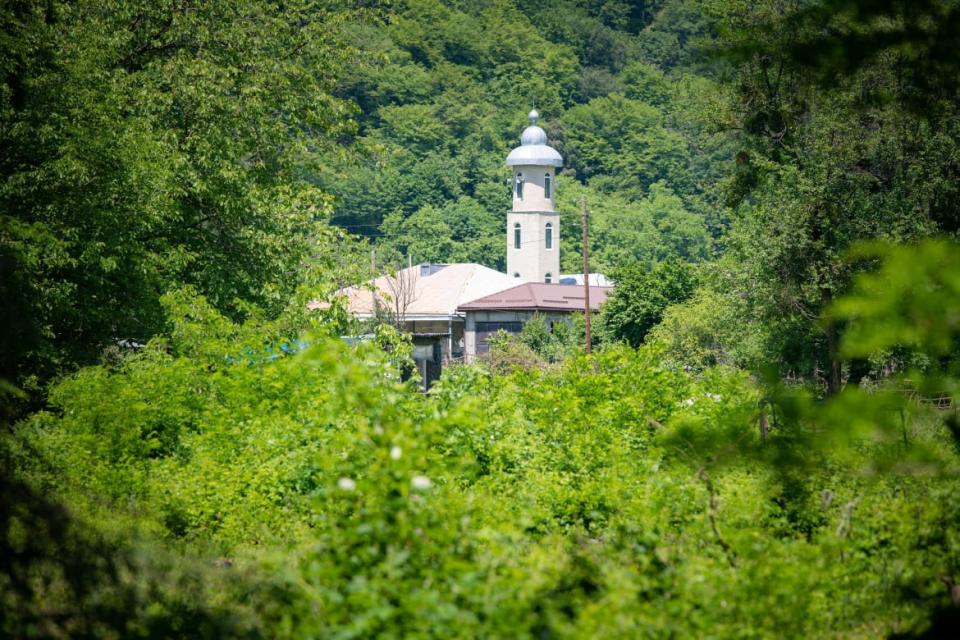
In 2018 Dakishvili formed the Pankisi Valley Tourism Development Association (PVTDA), a title for the nascent tourism collective emerging from her efforts. Other Pankisi women opened guesthouses, with four currently operating.
There was no grand design for the PVTDA to be led by women. Dakishvili said it happened naturally, perhaps because Pankisi women had a history of community activity.
For decades, local Kist women have convened once a week at a mosque to perform a spiritual dance ceremony called the Zikr. “This is the only place in the Northern Caucasus where women are allowed to do this in the mosque,” Dakishvili explained. “This happened because they decided: ‘If men are allowed to do physical things in the mosque, why shouldn’t women do the same?’ It shows how active women are here.”
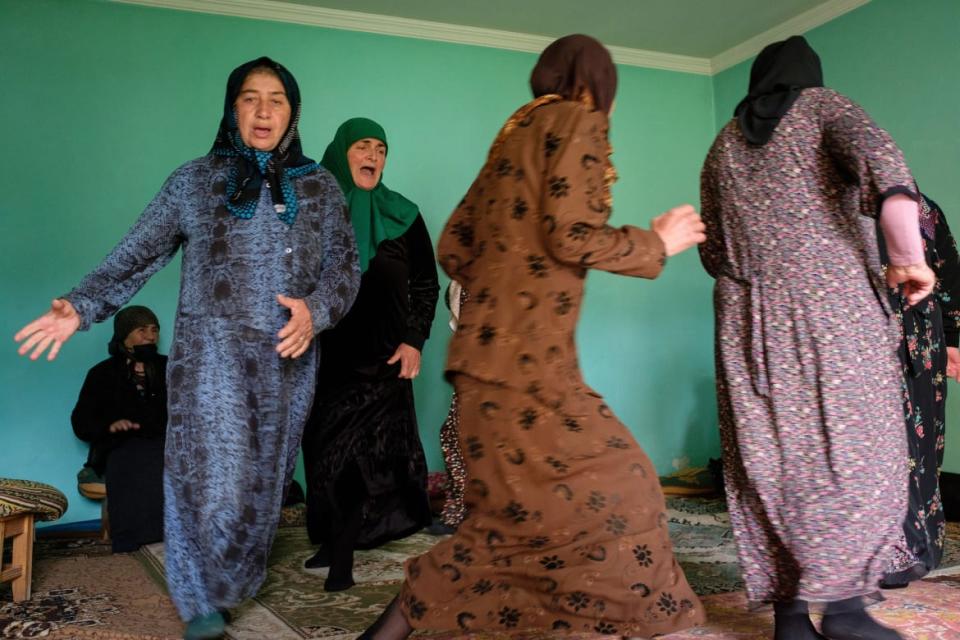
The PVTDA incorporates locals offering Kist cookery classes and horse rides on epic mountains, a non-alcoholic beer brewer, craftspeople making traditional felt products, and beekeepers selling local honey. Thanks to these organizing efforts, visitors can go on guided camping treks on some of Georgia’s most ruggedly lovely hillside landscapes. Or absorb the food culture while making nettle dumplings: a local speciality. “We needed this voice coming from our community,” said Dakishvili.
This collective voice counter-acted other powerful voices affecting Pankisi. Since the Pankisi crisis there have been further reports linking the area to violence. In 2016 a former Pankisi-based imam was jailed for 14 years for helping recruit for Islamic State. The following year a 19-year-old Pankisi man was killed in his home by Georgian state security during a raid.
Dakishvili doesn’t deny the chaotic aspects of Pankisi’s recent history. But, she said, “journalists came with preconceived notions. They just sat in the garden and had the article ready. Even in 2016, ’17 and ’18 we still had journalists writing the same narrative.”
It’s not accurate to say that all journalists reporting on Pankisi’s troubles have done so through a blinkered lens of stereotyping. The issues they reported on were real. But the frustration Dakishvili and her community felt at Pankisi only being written about in relation to terrorism was understandable.
This wasn’t just a case of hurt feelings—livelihoods were affected. Dakishvili said that tourists have canceled bookings after reading negative Pankisi articles. Other guesthouse owners have blocked journalists from staying with them, wary of facilitating damaging write-ups.
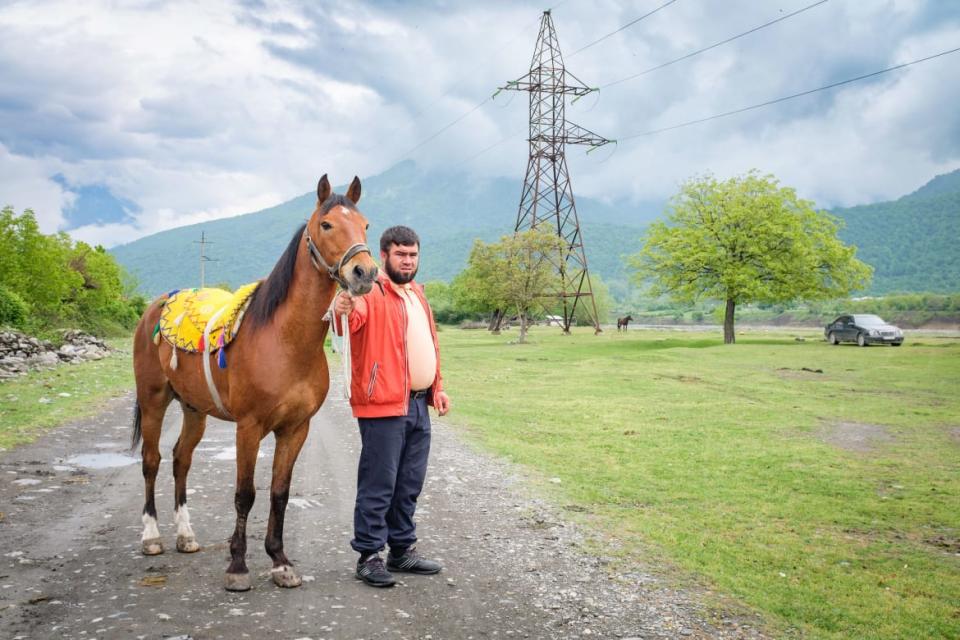
This drip-feed of negative press must have been particularly galling considering that Pankisi had been completely safe for visitors for years. And, as I saw, it is among the most welcoming places in Georgia. The only conflict I experienced there was a lively joust with a café owner, who insisted on giving me free cakes while I insisted on paying.
Recently, however, the tone of Pankisi’s media presence has shifted. Each year only a few thousand tourists visit, but they leave a trail of breath-taking #pankisivalley mountain and river shots online. Influential travel bloggers such as Georgia-based Emily Lush, who dubbed Pankisi “the most misunderstood place in Georgia,” have buttressed Dakishvili’s mission to show a different narrative.
Word of mouth about Pankisi being a calm, safe destination offering a cultural experience different to well-trodden, church-dotted, wine-splashed Georgia trails has spread. The terrorism articles are still online, but Dakishvili said that emails from tourists about whether Pankisi is “really safe” are becoming less common.
Perhaps the most telling indicator of change comes from young Pankisi locals. Unemployment is a huge problem in the area, with few jobs beyond shepherding, schools, and shops. Now students from Pankisi’s Roddy Scott Foundation, which provides English-language classes, work as guides, and have noticed other opportunities arriving with the tourists.
Dakishvili said that many young Kists leave Pankisi for work and education. Recently, though, “a lot of them said they wanted to set up businesses here. I said: ‘You are the ambassadors of the valley, you should feel proud’.”
Turning a much-maligned, isolated valley into one of Caucasia’s most intriguing niche tourist spots is something Dakishvili should be proud of, too.
Get the Daily Beast's biggest scoops and scandals delivered right to your inbox. Sign up now.
Stay informed and gain unlimited access to the Daily Beast's unmatched reporting. Subscribe now.

